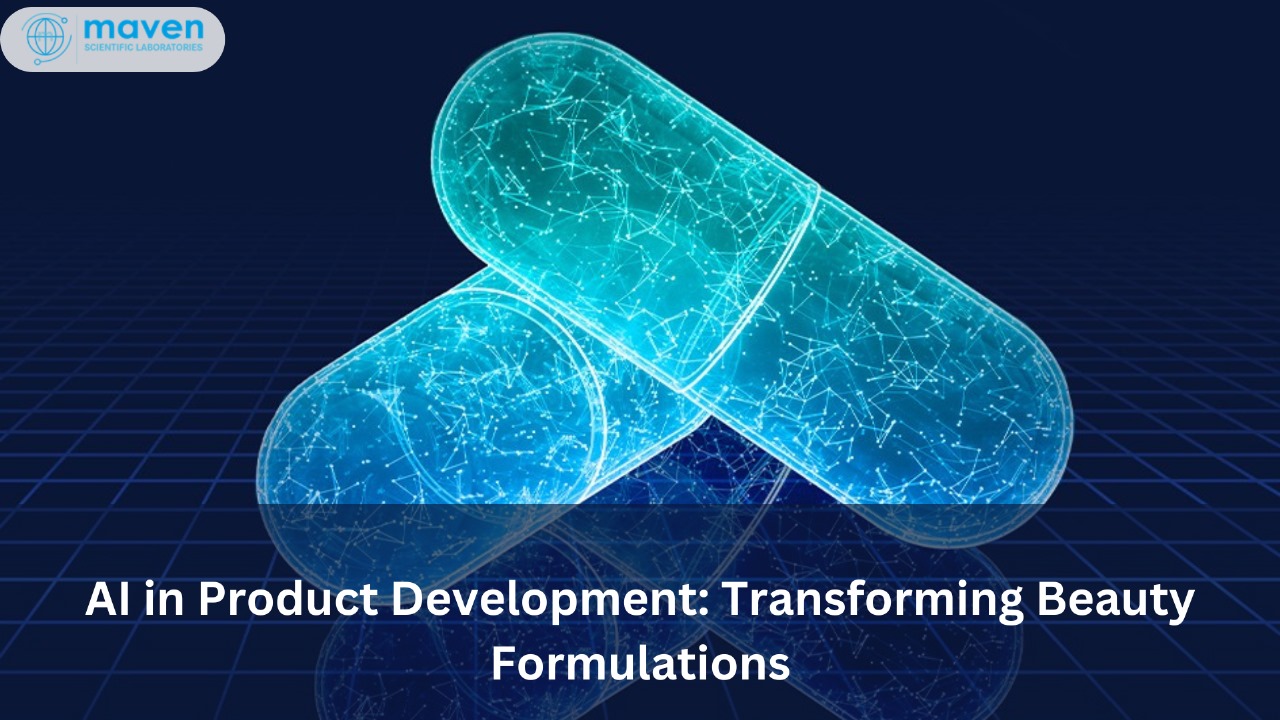March 02, 2025
The beauty industry is undergoing a technological renaissance, with artificial intelligence (AI) at the forefront of product development. From refining ingredient combinations to predicting consumer preferences, AI is making the research and development (R&D) process more precise, efficient, and trend responsive. Brands leveraging AI are not just accelerating innovation but also ensuring the safety, efficacy, and sustainability of their products.
The Role of AI in Beauty Product Development
1. Ingredient Optimization
AI-powered algorithms analyse extensive consumer feedback, dermatological studies, and clinical research to determine the most effective ingredient combinations. By leveraging machine learning models, beauty brands can:
- Identify ingredients that offer maximum efficacy with minimal risk of irritation.
- Customize formulations based on different skin types, environmental factors, and even genetic data.
- Discover new, innovative ingredients that enhance skincare and makeup performance.
AI ensures that product formulations are not only effective but also aligned with evolving consumer preferences for clean beauty and dermatologically tested solutions.
2. Predicting Market Trends
Understanding what consumers want before they even realize it is a game-changer. AI scans social media platforms, beauty forums, and online reviews to detect emerging trends in cosmetics. This allows brands to:
- Identify popular and emerging ingredients, such as adaptogens, probiotics, or plant-based actives.
- Adapt product offerings based on real-time consumer discussions and preferences.
- Strategically launch products that align with seasonal and cultural trends.
By utilizing AI for market research, beauty brands can create products that resonate with consumers and drive engagement.
3. Speeding Up Research & Development
Traditional product development cycles can take years, but AI drastically shortens this timeline. AI-driven laboratories use predictive analytics and simulations to:
- Test multiple ingredient formulations in a virtual environment before physical trials.
- Improve product stability, texture, and absorption through automated optimization.
- Reduce the need for excessive trial-and-error, expediting time-to-market for new launches.
AI is not only accelerating product development but also minimizing waste, making the process more sustainable and cost-effective.
AI Cosmetics Guidelines: Ensuring Ethical and Effective AI Integration
As AI becomes an integral part of cosmetics product development, companies must adhere to ethical, regulatory, and safety standards. Below are key guidelines for responsible AI use in the beauty industry:
1. Transparency and Consumer Trust
- Disclose the role of AI in product development, especially for AI-generated skincare recommendations.
- Ensure that consumers have access to information about how AI-powered analyses are conducted.
2. Data Privacy and Security
- Protect user data collected from AI-driven skin analysis and virtual try-on features.
- Comply with GDPR, CCPA, and other data protection regulations to safeguard consumer privacy.
3. Ethical Ingredient Sourcing
- Use AI to track ingredient origins and ensure ethical, cruelty-free sourcing.
- Align AI-driven formulations with clean beauty standards, avoiding harmful chemicals.
4. Regulatory Compliance
- Ensure AI-generated beauty products comply with FDA, EU, and other regulatory body standards.
- Maintain rigorous safety testing even when AI accelerates formulation processes.
5. AI Bias Mitigation
- Train AI models on diverse datasets to ensure inclusivity in skincare and makeup recommendations.
- Avoid reinforcing biases that could lead to inaccurate or unfair product suggestions.
By following these AI cosmetics guidelines, beauty brands can harness technology responsibly, ensuring that AI enhances rather than disrupts the consumer experience.
The Future of AI in Beauty Innovation
The fusion of AI and cosmetics is just beginning. As technology continues to evolve, future developments may include AI-driven DNA-based beauty customization, enhanced virtual beauty assistants, and even real-time skin health monitoring. The beauty industry is embracing AI not to replace human expertise but to enhance it, leading to smarter, more effective, and highly personalized beauty solutions.
AI is redefining beauty one formulation at a time—bringing science, sustainability, and personalization into the hands of consumers worldwide. By integrating AI ethically and responsibly, beauty brands can ensure innovation that is both groundbreaking and consumer-focused, paving the way for a future where beauty is truly personalized and sustainable.
Conclusion
AI's transformative role in beauty product development is revolutionizing the industry, making formulations more precise, efficient, and aligned with consumer needs. As AI continues to evolve, beauty brands must balance innovation with ethical considerations, ensuring transparency, inclusivity, and regulatory compliance. The future of AI in cosmetics promises personalized solutions that enhance beauty while prioritizing safety and sustainability. By harnessing AI responsibly, the industry can create smarter, more effective products that cater to diverse consumer preferences, ultimately redefining beauty for the modern age.


Post a comment